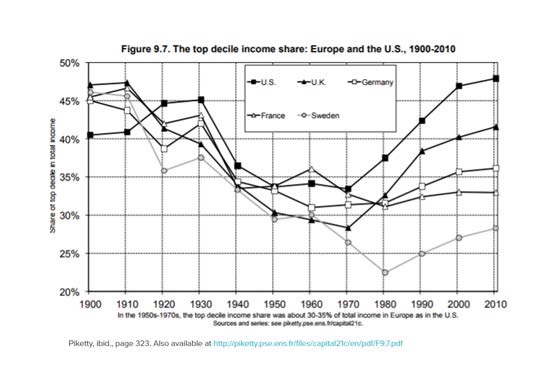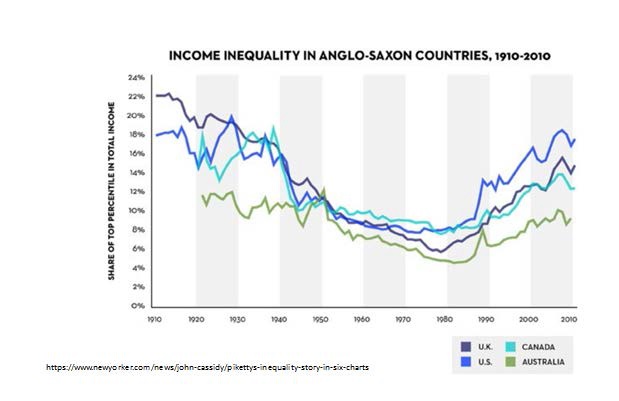The commons is one of the key ideas that we can make use of in our efforts at developing a postcapitalist politics.
In his keynote address at the Green Institute’s Conference, Everything is Connected, in October 2017, Dr Stephen Healy, discusses the what, why and how of commoning.
Thanks very much to Tim Hollo, the Green Institute and the conference organisers for the chance to speak and the opportunity to think together. Thanks as well to the previous speakers.
This conference is premised on the idea that everything is connected. As a geographer that speaks to the so-called first law of geography coined by the late Waldo Tobler in the early 1970s—his formulation was that “everything is related to everything else, but near things are more related than distant things.”
I have always been attracted to the first part of that proposition, and less so to the second. I note though the imprecision of nearness. What’s near? As an American living in Australia these past three years this question seems particularly acute, I still feel a bit out of place.
But near or far, here I am now, connecting to you.
I’ve been working with a group of activist scholars associated with the Community Economies Research Network for nearly two decades which draws centrally on the work of J.K. Gibson-Graham. This global network of nearly 200 artists, activists and scholars are all involved in researching experimental efforts at enacting new economies, new ecologies, new ways of being and relating in the world.
The political intervention we trying to make is to engage in and amplify experiments in enacting other, more liveable worlds. We want to multiply options, which means pushing back against the idea that still informs a lot of left theory that equates economy with capitalism. If capitalism is the only game in town than our choices are few: resist or obey. In the first instance, pursuing a postcapitalist politics begins with being able to see other options are available to us.
This was a much more difficult to proposition to sustain in 1996 when Gibson-Graham published the End of Capitalism just a few years out from the end of history in a decade of capitalist triumphalism. Now, 20 years later our efforts are part of a resounding chorus of social movements and theorizations of other economies—Gus Speth and Gar Alperovitiz have been busy documenting all of these in their Next System Project.
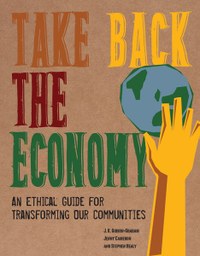 We wrote up many of these efforts in a book called ‘Take Back the Economy”—with a nod to the feminist slogan “Take Back the Night”. What we aimed to write was not a blue print, but rather a book organised around a key series of questions:
We wrote up many of these efforts in a book called ‘Take Back the Economy”—with a nod to the feminist slogan “Take Back the Night”. What we aimed to write was not a blue print, but rather a book organised around a key series of questions:
- What do we need to survive?
- How do we organise enterprise and distribute surplus?
- How can we exchange with others in ways that respect their needs and ours?
- How do we care for what we hold in common?
- And how do we invest in a common future?
For us a politics of community economy happens when people begin the serious work of answering these questions in ways that affirm an interdependence—precisely what capitalism tends to deny and disavow—the proposition that everything is connected.
Recently Kath, Jenny and I had the opportunity to travel to countries where people were translating Take Back the Economy into other languages, drawing on local examples. Kath travelled to Korea to visit a thriving social economy in southern South Korea that has sprung up in the wake of anti-democratic violence and repression during the 1980s political dictatorship. I travelled to Colombia just three months after the end of the 50 year conflict to visit communities in plains surrounding Bogota who are figuring out how to preserve the campesino way of life in the face of new threats posed by peace. They are translating and using the ideas in the book as they go. Jenny travelled to Finland, a small country of 6 million people full of community based initiatives among Finns and the Sami people, working in the context of a society that is very close to rolling out a version of the basic income. What was interesting in these places is that there were many efforts and initiatives working at building other worlds, that were aware of one another but had never met. Our project workshops was one moment where they were brought close together, made near.
Everything is connected—and distant things, distant people, can be brought closer—we can share what we know.
What are commons?
Commons is one of the key ideas that we can make use of in our efforts at developing a postcapitalist politics. This idea puts us into conversation with a great many others at present, but also given the concept’s historical roots it connects us to the past as well.
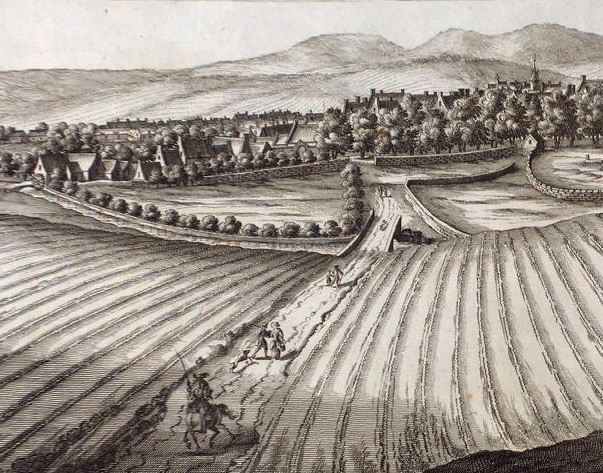 In order for the commons to be useful for us, a first step is to rescue it from the grip of a familiar story which positions it in relation to the development of capitalism: the process of enclosure and primitive accumulation, the freeing up of labour power from agriculture then available for industry. Adam Smith gives us one way of understanding this story in the Wealth of Nations, Marx and later David Harvey another—in particular the idea that primitive accumulation can happen again in other ways, new enclosures.
In order for the commons to be useful for us, a first step is to rescue it from the grip of a familiar story which positions it in relation to the development of capitalism: the process of enclosure and primitive accumulation, the freeing up of labour power from agriculture then available for industry. Adam Smith gives us one way of understanding this story in the Wealth of Nations, Marx and later David Harvey another—in particular the idea that primitive accumulation can happen again in other ways, new enclosures.
There’s no need to deny that this process of enclosure, privatization, and accumulation has generated the resources for capitalist development—all that is now held privately, un-commoned by a tiny few. But there’s a problem when we’re left imagining that that’s all there can be. Is it possible that not all commons have been enclosed, (as Massimo Deangelis along with another David Harvie suggest) and that there might be a different role that the common use and sharing of wealth can play in society?
Let me for a moment trace another trajectory of commoned wealth. Consider for a moment the work of an Italian contemporary of Adam Smith who wrote about the collapse of the feudal social order. Antonio Genovisi theorised the emerging free markets in urban centred economies as spaces of mutuality, constituted through joint exercise and generative of commonwealth and goodwill (and goodwill he distinguishes from both intimate friendship but also from self-interest.. something that becomes instead its own sociality). His vision was partially inspired in turn by the Franciscan tradition that practiced a commons-economy in monasteries over centuries. And there’s a relationship with what followed: Genovesi’s writing informed Italy’s long history of civic cooperation that arose in both secular and religious institutions.
A commonwealth, a feeling of good will, a way of understanding cities-as-spaces of mutuality among free and equal people—indeed this could be the beginning of a different trajectory. Trajectory implies something in motion along a particular path. The question arises: how do we follow a commons trajectory? Can we identify it and in following it practice another politics and if we’re lucky, build another world?
For us a key insight in establishing this new trajectory has involved a slight shift in our thinking about commons, one that allows us to draw commons out of the past, out of its fixity in the landscape as an agrarian commons and into a present day politics. Linebaugh insists that commons are only commons because there is a community that is actively constituting them—using, but also caring, for their continuity. He insists that we should speak of the commons as a commoning, something we do on an ongoing basis.
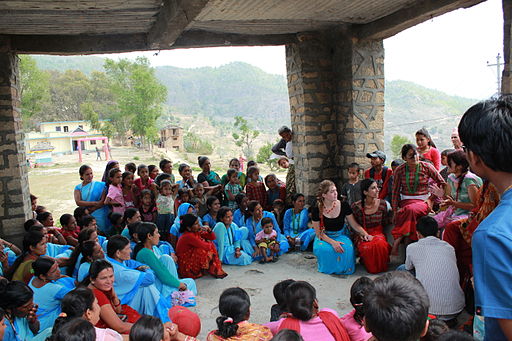
A commons for us is a social practice that involves the establishment of the rules—commons are things where the terms of access and use are widely shared, where responsibility and care for a thing is distributed across a community, and where the community of benefit is widely defined. Wide—but not wide open. Part of the way things are kept common is in fact to exclude some uses and/or to privilege others, to limit access as well as grant it, to define roles and benefit and care. When we do these things—we are commoning.
In our book Take back the economy, and partially inspired by Linebaugh, Ostrom and others, we developed the commons identikit as a way of identifying where commoning is taking place, what’s being held in common and who is a commoner.
This sociality use, access, the allocation of responsibility, care and the definition of benefit distinguishes a commons from private property—where there is a more restrictive definition of access, use, care, responsibility and benefits.
Commons too are different from those things where the rules have yet to be established. This is the open access unmanaged commons. Note that Hardin conceded in 1997, 30 years after his original essay on “The tragedy of the commons” that his omission of the word “unmanaged” from his treatment of the commons was the weightiest mistake of his career.
This shift in perspective from commons to commoning, from commons as a thing to a social practice around a set of rules makes it easier to identify commoning, commons and commoners more broadly.
While a commons-managed forest, or fishery comes readily to mind it is also possible to see how cultural commons such as language, social commons such a health care or education system, and knowledge commons are things that we make and share, but more than that, their value comes in the sharing itself—they gain value as they circulate.
Even law itself is understood be something of value if it can be cited, when the courts in the US knocked back LexisNexis’s attempt to make law their property, there was a recognition that the system only functions if it is held in common—the law functions through its accessibility and continued use.
It’s at this point that we might begin to see how commons culture, social institutions and knowledge commons, like the air and soil are our common inheritance to care for or abuse.
What this also means is that we can practice more broadly a politics of commoning. Properties that are private can be wholly or partly commoned, what is an unmanaged resource can commoned through the establishment of rules, or new commons can be created.
- We can partially or wholly common private property—for example, in the US Maine’s private forests have been open to use for gathering, hunting and recreation for generations—but also cared for by the same community.
- We can establish rules to govern what is currently open-access: human communities are struggling to common open-access oceans and atmosphere.
- Or we can build new commons—the sociality of use of digital technologies and knowledge commons are being worked out as they are created.
What this suggests is that there is an ongoing political struggle to define access and use, to identify the community of benefit and to establish protocols of responsibility and care. Given that even holding private property depends as well on the commoning of social relations, it’s really not an opposition between stark alternatives; commoning vs. privatization, but rather between commoning vs. un-commoning, a struggle as well between the use and care of a common vs. destructive consumption, what in the old Latin was called abusus.
And I suppose what this means is that we are all, consciously or not, caught up in a politics of commoning—establishing the rules—and living by them. I think commoning as a concept allows us to see a political project much bigger than simply delegating responsibilities to the state to maintain the public good though certainly the state has a role to play.
Why common?
I want to shift for just a moment from what is a commons—what do we mean by it—to the question of why common. I am not alone in asking this question, as the commoning agenda seems to be quite widespread.
My suspicion is that this profusion of interest in commoning, in cooperativism, the sharing-economy even in its most corporate form reflects a growing felt-consensus that things cannot go on as they have, that we are at or have moved beyond social, economic and ecological tipping points—a world where both the uncommoning of wealth and resources and the destructive use, the abuse of ecological resources that has brought us to the brink.
To briefly remind ourselves of what we already know. Here is a familiar chart of income accruing the top decile in a set of developed countries between 1900 and 2010 from Thomas Piketty. In the US and elsewhere levels of income accruing to the top decile have reached levels similar to the gilded age of the 1920s.
One response would be to seek how to restore the conditions that prevailed in the mid-twentieth century—the terms of the capital labour accord which made income inequality less extreme and capitalism more bearable. But of course it’s this same impulse that is currently catalysing a politics of resentment is exactly what Trump is doing—mobilising this resentment with no intention of ameliorating it.
Here we see a similar trend among the top 1% share of income among so called Anglo countries including Australia.
And of course this un-commoning of the social net product means more precarity for most of us, means less of a capacity to deal with life’s perturbations as they arise.
The complement to this un-commoning of wealth is the degradation of those things we cannot ultimately enclose. Here’s an image I used last year in a lecture on climate change I gave in New Zealand to emphasise how the last 150 years of fossil fuel combustion has affected global ambient temperatures.
And here two years later we find ourselves continuing to warm up. Anthropogenic climate change, does not replace the astronomic, chemical, geological, biological and hydrological drivers of the climate system. They keep on ticking but the last 150 years of industrial activity and in particular the activities of the last two generations have shifted how the climate system expresses itself. We didn’t start the fire as Billy Joel once put it, but we are bringing the petrol.
But this undifferentiated “we”, and really the implied universal in the term “Anthropocene” obscures different degrees of culpability—according to Heede the bulk of carbon emissions come from around 100 private and state owned petroleum and concrete factories. It also elides the differential degrees of vulnerability to the consequences of this abuse of our atmospheric commons. Certainly we saw this differential playing out in the flood events throughout south and southeast Asia.
But it also has consequences. Sydney’s build out, particularly for working people, is taking place in parts of western Sydney that are already hitting 45 in the summer. Here we can see economic inequality and ecological inequality playing itself out—built into an environment where the only the quality of coolth available is indoors. By default the private solution of air-conditioning, further uncommoning of the atmosphere becomes the only solution. This enclosure is built in when no consideration is given to the design features—trees, canopies or other features that might provide relief, but equally important create spaces of conviviality and connection.
We are being built into loneliness here as well. I must note in passing the new research coming out of America that identifies the biomarkers of loneliness in adults as very similar to smoking and obesity—it is a heart-lethal condition reported by 40% of Americans who say they have no one to share with.
I am reminded of the words of the native American poet John Trudel—“The closing of your doors cannot shut us out, the closing of your doors can only shut you in.”
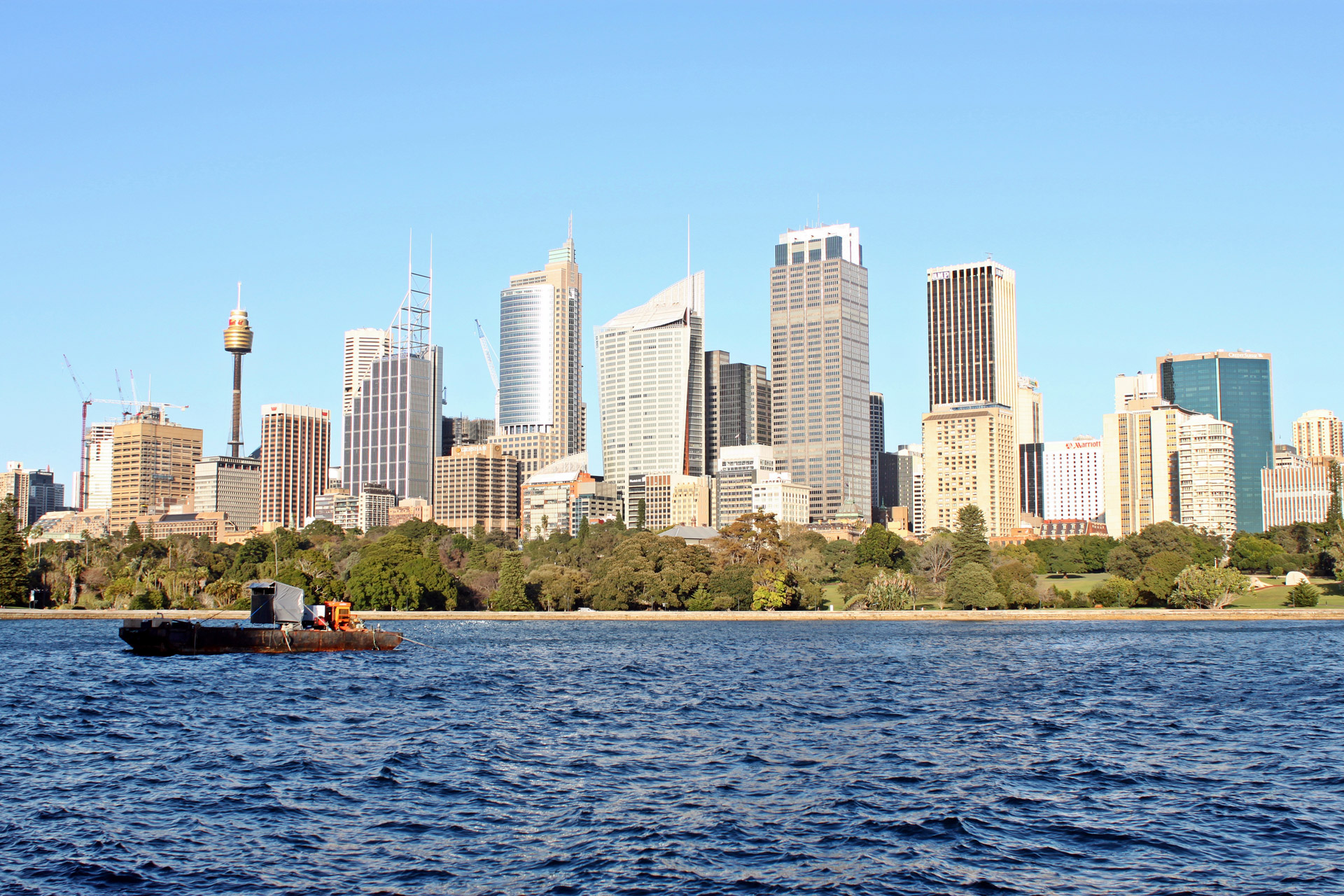 The alternative to westward expansion is infilling the city. But here we see citizens resisting these efforts with the argument that the city is already full. And in a sense they are right, the auto-infrastructure is what gives them this sense of fullness.
The alternative to westward expansion is infilling the city. But here we see citizens resisting these efforts with the argument that the city is already full. And in a sense they are right, the auto-infrastructure is what gives them this sense of fullness.
There’s a way in which all that petroleum and concrete—made not by us, but for us in our name—creates urban environments where we bake on the edges and where we can’t imagine another neighbour in the city centre.
We do have an opportunity to avoid this but it would mean making a city-space different than the one presently being built: seeing and then enacting more sociable forms of transit, more sociable forms of cooling might in turn allow us to build cooler urban environments, a shift in design that has climate consequence.
These reflections are, I should add parenthetically, connected to a study I am involved in with colleagues—cooling the commons—which steps away from the techno-infrastructural solutions to think about the social practices that comprise city space—how alternative approaches to coolth might gain traction.
Everything’s connected, or more precisely in this case our efforts at sharing the city in one way as opposed to another, to hold it in common, to care for it and one another, might have implications for how we live life and rule in relation to something else we hold in common.
How do we common? How do we pursue a politics of commoning?
And this brings us to the question of how do we common, how do we engage in formulating, negotiating and ultimately living the rules through our commoning? How in other words would we practice a politics of commoning? We know what it is, but looking at how it’s done will help us to follow the commoning-trajectory.
I’d like to use the balance of my time to talk about examples of how we common—and I think each emphasises a different feature of a commoning politics, or aspect of commoning as a political practice that in a sense has to be there if we are to respond to wicked challenges like climate change.
First I’d like to think about a politics of commoning through time, both making the case that we—communities, nations, even the species—are up to the challenge of responding to climate change, even if it may take a while. But seeing commons across time also underscores the extent to which a politics of commons is one of making connections, of building and assembling relationships that, in turn allows us to use without destroying, maybe even to repair.
And I think if we can see commons and commoning in the air, we might begin to recognise it more quickly, to practice it more capably in other relationships and in response to other challenges, needs and opportunities.
But really the political intervention I am wishing to make here is to suggests that commoning as I am treating it here is possible and one way of convincing ourselves of this proposition is to look backwards in time for evidence of it, evidence that we are capable of following a different trajectory.
Physical geographer Howard Bridgeman and historian Nancy Cushing’s book Smoky City documents the struggle, largely by local residents, both union members and the wider community, to common the atmosphere of Newcastle.
We can look at this by using one of the tools from Take Back the Economy, the commons yardstick which introduces a temporal framing for thinking about practices of commoning. From the late 1930s to the late 1960s, over the timeframe of a generation and a half, there was a dramatic decline in air pollution in Newcastle—because local regulation created a political precedent that lead to national policy with tangible impacts on particulate pollution.
Its worth noting that this same time frame 3 to 2 generations ago saw similar initiatives under way in the UK after the killer fog of the 1950s and a little later in the US under Nixon. We can see in these efforts a care for the commons, an assumption of collective responsibility that aims to transforms the conditions of access and use—away from abuse.
Of course these gains require vigilance to be maintained in each of these countries and this is a struggle still taking shape globally at a time where the Lancet study published this month connects 1 in 4 deaths globally to air and water pollution.
 David Bollier writes about the practice of “beating the bounds” of the commons—the collective practice of walking the edges of a commons to drive away poachers or other forms of incursion. It seems like something similar is required here in relation to the politics of atmospheric pollution at this moment—one obvious form this took was calling BS on the false emissions reports of Volkswagons diesels.
David Bollier writes about the practice of “beating the bounds” of the commons—the collective practice of walking the edges of a commons to drive away poachers or other forms of incursion. It seems like something similar is required here in relation to the politics of atmospheric pollution at this moment—one obvious form this took was calling BS on the false emissions reports of Volkswagons diesels.
We can see further evidence of this other trajectory in relation to the intergenerational struggle with ozone depleting chemicals. While the story begins with the synthesis of CFCs in the early 20th century it wasn’t until the 1970s that this is struggle started when two scientists published a paper in Nature in which they hypothesised that ozone-depleting chemicals (ODCs) were migrating into the upper atmosphere and depleting the ozone layer. In 1985 what became known as ‘the hole’ in the ozone layer was detected and visually represented and that led rapidly to the formulation of the Montreal Protocol on Substances that Deplete the Ozone Layer and a world-wide phase-out of ODCs. By 2005 the production and consumption of ODCs had decreased by 95 per cent. These chemicals have an atmospheric lifetime of 50 to 100 years so it will still take several generations to repair the damage. Nevertheless the Montreal Protocol has been dubbed “the world’s most successful environmental agreement.”
Here again, we can see how a politics of direct action also played a part in this struggle—including building trade unions in Australia who refused to install fire suppressing systems that contained ODCs, which ultimately forced changes among chemical manufacturing. Here we can see direct action as a form of care-commoning.
Anthropogenic climate change is a different kind of challenge than ozone depletion.
As I intimated earlier, climate change is in a sense designed into the built environment and transportation, but of course more than that— food, healthcare, defense, even education.
I am reminded of that pivotal scene in the original Jaws movie when the chief first catches site of the Shark in the water and says quietly “we’re going to need another boat.”
We need a bigger boat to deal with climate change, but what the commons concept allows us to keep in the foreground is that commoning is something we do together.
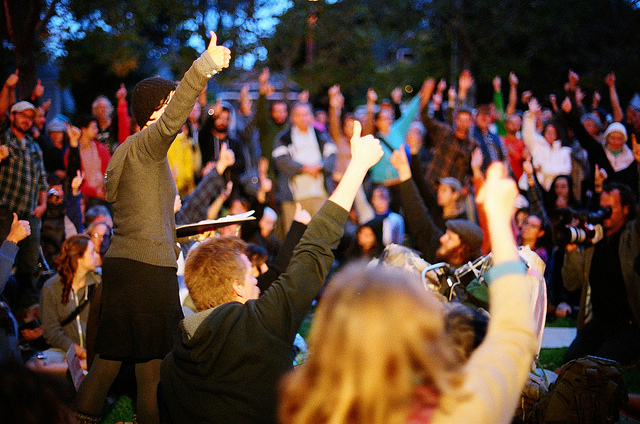 In relation to energy generation—what we see here is a stitching together of technology pv+storage, new systems of finance, civic engagement—from lock the gate, to 350.org, to solar citizens, new forms of sociality and conviviality where people can experience the city in less energy intensive ways, renewable energy procured on a municipal scale—all of these disparate ideas in effect potentially transform the energetic system and in turn how we access and use the atmosphere in turn constituting a community of benefit.
In relation to energy generation—what we see here is a stitching together of technology pv+storage, new systems of finance, civic engagement—from lock the gate, to 350.org, to solar citizens, new forms of sociality and conviviality where people can experience the city in less energy intensive ways, renewable energy procured on a municipal scale—all of these disparate ideas in effect potentially transform the energetic system and in turn how we access and use the atmosphere in turn constituting a community of benefit.
And this could be linked to still other efforts. A basic income payment might allow for a more convivial, less energetic way of life to the benefit of the atmosphere and its commoners.
Commoning conclusions
For the past few minutes I have tried to make the argument that a commoning politics is an alternative trajectory. We can see this capacity for collective action that emerges in relation to community efforts to common the atmosphere—to redefine the rules of access and use, to re-establish rules around practices of care and responsibility over generations an in ways that benefit a larger community. We can recognize the commoners, knowing them by their works through time. The politics of commoning enrols an array of actors in the process—technological and financial innovation, poltical movements, changes in habit and practice. Across space and over time. The change it attempts to produce is something other than a capitalist politics of un-commoning.
And really there are other stories to be told about commoners, commoning and commons—Michel Bauwens for example has looked at the implications of the open-source software community and platform technologies and imagined new ways of commoning manufacturing, health care, resources and decision making—even a re-image of the state as a fellow commoner. What my colleagues and I are doing reflects our role as researchers and educators—is to make the commoning a more discernible, practicable, and attractive to young people—and here it would seem we can draw on a knowledge of commons of commoning near and far, bringing them close, and insisting that everything is connected this sharing.

